Manchester United reached a first FA Cup final since 2007 – when they lost to Chelsea – and five things stood out in the game, including Wayne Rooney’s sparkling performance in a new role…
1. Rooney was key to victory
Preventing Romelu Lukaku’s goalbound effort from finding the net, the last line of a momentarily bedraggled United defence, summed up Wayne Rooney’s performance – a performance that played a major part in United reaching the final on May 21, and a performance that puts him one game away from claiming the first FA Cup winner’s medal of his career. At club level, he’s won pretty much everything else.
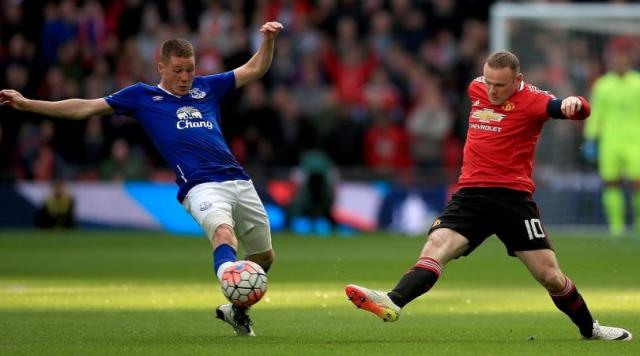
Wyane Rooney’s inclusion was the only change Van Gaal made to the side that won 2-1 in a quarter-final replay at West Ham United 10 days before this semi-final. He was a substitute feeling his way back from injury then. When fully fit, Rooney plays.
Where he plays is a different matter. Striker, wideman, even holding midfielder, Rooney has done it all over the last year or two. This time he was employed as an attacking midfielder alongside Marouane Fellaini, in front of Michael Carrick, but some way behind Marcus Rashford. Rooney ran the show for United, particularly in the first half.
It was Rooney that started many attacks, bringing Anthony Martial and Jesse Lingard into play. One particularly exquisite pass played in Lingard, only for Joel Robles to save. With Rashford now a key part of the United attack, this looks like being Rooney’s role for the time being.
Even the man himself couldn’t have predicted that this would be the reason United fans were singing his name so early into this FA Cup semi-final.
2. Are left-footers worse at penalties?
“I don’t trust left-footed penalty takers,” former Newcastle full back Warren Barton once oddly commented after watching a penalty shootout between Everton and Chelsea, in which Leighton Baines and Ashley Cole had both missed. It seemed a rather bizarre theory. After all, why should left-footed penalty takers be any worse than right-footed penalty takers, in the same way that there’s no reason why left-footed footballers should be any worse than right-footed footballers?
This time Lukaku was the left-footed player to miss from the spot for Everton, his second successive penalty failure – although to be fair he’d scored the five before that.
Intriguingly, there is actually some evidence to suggest that left-footed penalty takers miss more often. In the Champions League between 2007 and 2014, right-footed players were successful with 78% of penalties, left-footers with only 63%.
Another survey in 2010 – based on a range of top-level matches on the domestic, European and international stages – showed that right-footers were successful with 69% of spot kicks compared to just 50% for left-footers.
3. Martial shows he can deliver in key moments
Many said that United had paid too much when they spent £36m, rising to £58m, to lure Martial from Monaco at the start of the season. But not only has the 20-year-old proved this season just how much talent he possesses, he has also now proved that he can deliver at the crucial moment.
Muhamed Besic is an experienced pro who has lined up for Bosnia at a World Cup, but he isn’t a right-back and it was always going to show against Anthony Martial. The Frenchman was a constant threat throughout the match, causing huge problems cutting in from the left.
It was Martial who darted past Besic to the byline to set up Marouane Fellaini’s opening goal, and there seemed little doubt that he would score when the ball fell his way in injury time. The Henry-esque finish was delivered with typical calm.
4. Fellaini justified his selection over Schneiderlin
Van Gaal’s decision to leave out Morgan Schneiderlin was surprising for one major reason – United win much more frequently with the Frenchman than without him.
In total this season they have won 19, drawn eight and lost only five of the 32 games that the ex-Southampton man has started. When he hasn’t, they’ve won eight, drawn four and lost nine.
But Marouane Fellaini started ahead of Morgan Schneiderlin in the quarter-final replay win at West Ham, netting United’s second goal in that game, and he scored again here. Everton couldn’t handle the Belgian’s physical presence and Fellaini won several headers in the Toffees’ penalty area.
In the end Van Gaal was right. Fellaini offered an attacking threat that Schneiderlin doesn’t possess.
5. Rojo struggled against Deulofeu… again
Everton were below par in the first half but the game changed after the interval. “It took 45 minutes to get into our own rhythm,” Roberto Martinez said afterwards. “In the first half couldn’t get into the areas we wanted to get into to dictate the play. But in the second half we built an incredible tempo, a great intensity.”
As Everton started to get on top, so too things unravelled for Rojo. Aaron Lennon started to make more of an impact and when Martinez replaced the former Spurs winger with Gerard Deulofeu, Rojo’s problems got even worse.
Deulofeu was afforded an acre of space by United’s left-back to deliver the cross that led to Chris Smalling’s own goal. The former Barcelona man also saw a shot saved by De Gea and set up Lukaku for a chance, as his pace and dribbling skills caused Rojo and United all sorts of issues.
In the end, it didn’t cost Van Gaal’s men. But Rojo remains a potential weak link in the United defence.
Culled from www.fourfourtwo.com

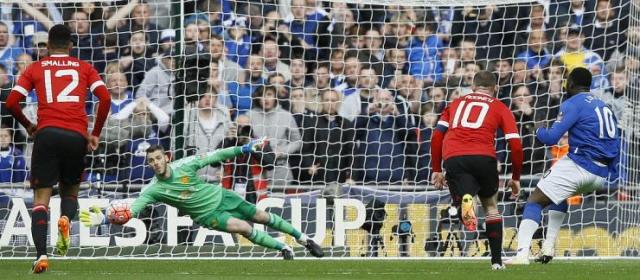
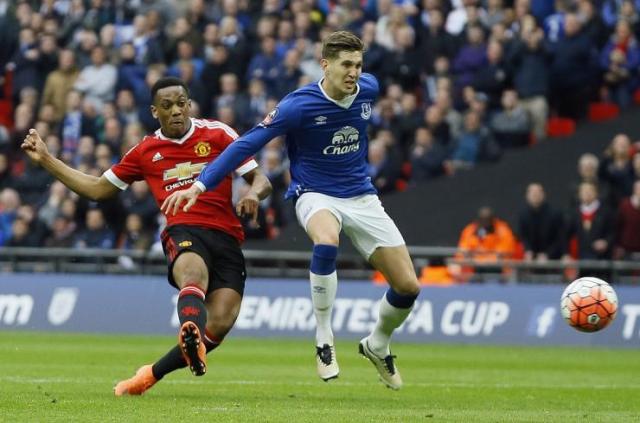
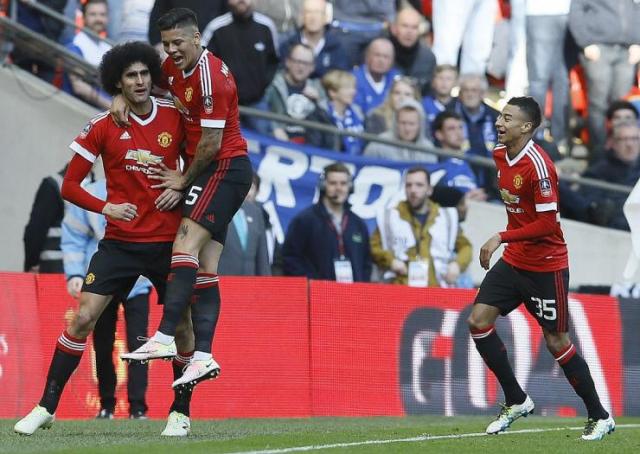
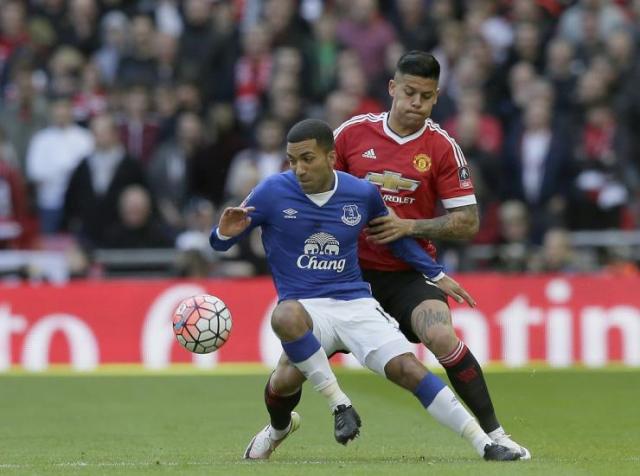
COMMENTS